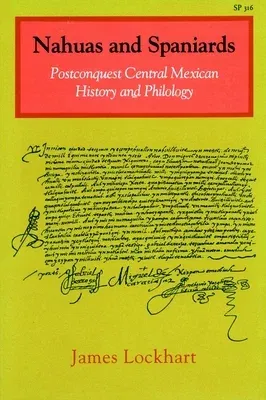James Lockhart
(Author)Nahuas and Spaniards: Postconquest Central Mexican History and PhilologyPaperback, 1 August 1991

Qty
1
Turbo
Ships in 2 - 3 days
In Stock
Free Delivery
Cash on Delivery
15 Days
Free Returns
Secure Checkout

Part of Series
UCLA Latin American Studies;
Part of Series
Nahuatl Studies Series
Print Length
308 pages
Language
English
Publisher
Stanford University Press
Date Published
1 Aug 1991
ISBN-10
0804719543
ISBN-13
9780804719544
Description
Product Details
Author:
Book Format:
Paperback
Country of Origin:
US
Date Published:
1 August 1991
Dimensions:
22.86 x
15.49 x
2.54 cm
Genre:
Mexican
ISBN-10:
0804719543
ISBN-13:
9780804719544
Language:
English
Location:
Stanford, CA
Pages:
308
Publisher:
Weight:
408.23 gm